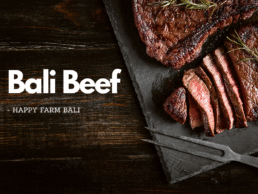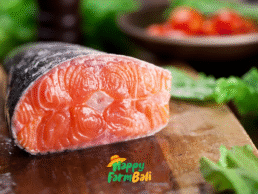No.1 Supplier Horeca for High-Quality Restaurants & Hotels
This country is not only a world-renowned tourist destination famous for its natural beauty and cultural richness but also a growing hub for the culinary and hospitality industries. With the rising number of restaurants, hotels, and cafés, the demand for high-quality ingredients has never been greater. From premium beef, fresh salmon, to a wide variety of seafood, these elements are essential to maintaining the culinary standards expected in Indonesia. This is where the role of a Supplier Horeca becomes crucial, ensuring that hotels, restaurants, and culinary businesses consistently deliver top-notch dishes that meet international standards.
The Importance of Horeca Suppliers
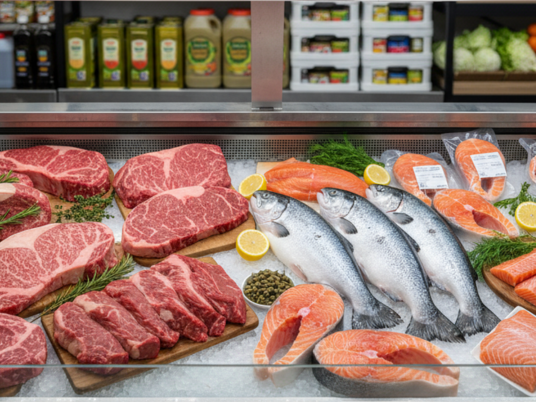
The hospitality and restaurant industries in rely heavily on consistent ingredient supplies. Without the support of a reliable Supplier Horeca, it would be challenging for any establishment to maintain quality, flavor, and presentation. Reliable supply is not just about quantity—it’s about quality, timely delivery, and ensuring that every product arrives fresh and safe to consume.
Professional suppliers understand the unique requirements of the horeca (hotel, restaurant, café) sector. This includes specific cuts of premium wagyu beef, fresh salmon delivered under controlled cold-chain conditions, and a wide selection of both local and imported seafood. Such demands can only be met by suppliers with strong expertise and a well-established distribution system.
Premium Beef for Culinary Excellence
Indonesia is home to many fine dining establishments that highlight dishes such as steaks, barbeques, and other beef-based specialties. As a result, the demand for premium beef—such as wagyu, angus, and high-grade local beef—is consistently high.
A Supplier Horeca plays a vital role in providing a range of beef options that restaurants can align with their target market. Beyond imports, reputable suppliers also collaborate with local farmers to ensure a sustainable supply of fresh meat. This consistency allows chefs to create dishes that not only taste outstanding but also maintain texture and flavor uniformity, critical for guest satisfaction.
Fresh Salmon, a Modern Menu Essential
Salmon has become a favorite in many restaurants, featured in dishes like sashimi, sushi, poke bowls, and grilled entrées. The greatest challenge in supplying salmon lies in maintaining its freshness from shipment to the restaurant kitchen.
A reliable Supplier Horeca invests in cold chain systems to ensure salmon remains in pristine condition. This is essential, as even the slightest mishandling can compromise quality or pose health risks. With consistent deliveries of fresh salmon, Bali’s restaurants can confidently serve international-standard dishes that delight travelers from across the globe.
Fresh Seafood, Bali’s Culinary Strength
Blessed with rich marine resources, Bali offers an abundance of seafood—ranging from prawns, crabs, lobsters, squid, to a variety of fresh fish. It’s no surprise that seafood has become a cornerstone of the island’s culinary identity. However, the high demand requires professional handling to prevent shortages or quality degradation.
A trusted Supplier Horeca Bali provides both local and imported seafood, delivered with care to preserve authentic taste and freshness. This enables chefs to innovate across menus, from seafood grills and pasta to traditional Balinese dishes rich in spices. Reliable suppliers ensure that the island’s culinary scene continues to thrive with diversity and excellence.
Challenges in Choosing a Supplier Horeca Bali
While many distributors operate in Bali, not all meet the stringent requirements of the horeca industry. Common challenges faced by businesses include:
- Inconsistent quality – Products may vary between deliveries.
- Unreliable delivery schedules – Late shipments can disrupt operations.
- Limited product range – Restaurants often require diverse ingredients for complex menus.
- Lack of professional support – Premium suppliers typically also provide product consultations, menu recommendations, and after-sales service.
Therefore, selecting a supplier goes beyond price—it requires evaluating credibility, experience, and reliability.
Trusted Supplier Horeca
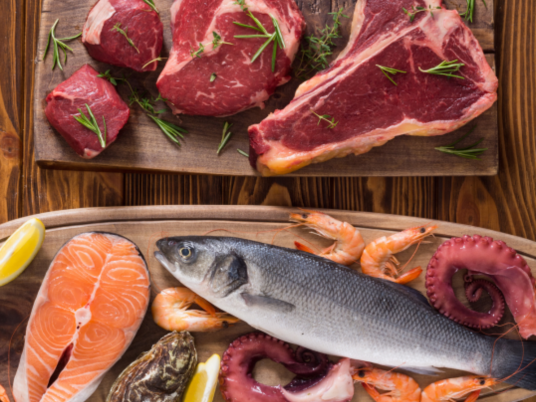 In Bali’s highly competitive culinary landscape, having a dependable supplier is a long-term investment. Among the most trusted names is Happy Farm.
In Bali’s highly competitive culinary landscape, having a dependable supplier is a long-term investment. Among the most trusted names is Happy Farm.
Happy Farm Bali has earned recognition as a Supplier Horeca that restaurants, hotels, and cafés can rely on. With expertise in distributing premium beef, fresh salmon, and high-quality seafood, the brand understands the elevated standards of the culinary industry. Beyond quality, Happy Farm Bali emphasizes a professional distribution system that ensures products reach clients in optimal condition.
Why Choose Happy Farm Bali as Your Horeca Supplier
Several key strengths make Happy Farm Bali a top choice:
- Premium Product Quality: From beef to salmon and seafood, every item undergoes strict selection.
- Professional Distribution: Supported by a cold chain system to maintain freshness.
- Wide Product Range: Offering a complete selection for restaurants, hotels, and cafés.
- Responsive Service: A dedicated team ready to assist with client needs.
- Trusted Partnerships: Widely chosen by leading culinary businesses in Bali.
With these advantages, Happy Farm Bali is more than just a supplier—it is a strategic partner that supports the success of Bali’s hospitality and culinary industries.
A Supplier Horeca plays a pivotal role in maintaining the high standards of the island’s vibrant food and hospitality sector. From premium beef and fresh salmon to a wide array of seafood, every ingredient requires professional handling to ensure quality and consistency. For restaurants and hotels aiming to uphold their reputation and guest satisfaction, choosing a trusted supplier in Indonesia is a strategic necessity.
Among the many options available, Happy Farm Bali stands out as a highly recommended supplier. With premium products, professional distribution, and consistent service, Happy Farm Bali has become a trusted partner that strengthens the culinary excellence of Bali’s hospitality industry.
Beef in Bali Commodity vs Bali Cultural Values
Bali is not only known as a world-class tourism destination with its stunning beaches, terraced rice fields, and exotic cultural charm. The island also has a wealth of culinary and food commodities that reflect social, economic, and traditional life that are still highly respected today. One of the most important commodities in daily life is beef in Bali. The beef products circulating in Bali are not only viewed as mere food ingredients but also carry a philosophical meaning closely tied to traditional ceremonies, cultural practices, and the identity of the local people affectionately called Bli.
This article will discuss how Bali beefs is present in both modern and traditional markets, its role within the cultural system of society, and how consumers can choose a trusted distributor. The discussion flows descriptively, touching on social, economic, and spiritual aspects, giving readers a complete picture of this essential food commodity on the Island of the Gods.
Beef in Bali Market in Daily Life
For Balinese people, beef is not only a dietary need but also part of the local economic pulse. In traditional markets scattered across villages, beef products are always the top choice, whether for daily meals or preparations for ceremonial events. The fresh color, chewy texture, and distinctive aroma make this product favored by housewives, food vendors, and modern restaurants alike.
In modern markets, the demand for beef in Bali continues to grow, especially with the expansion of the tourism sector. Restaurants, hotels, and cafés serving both Indonesian and international cuisine require large amounts of beef supply. Here, the role of distributors becomes vital to ensure quality meat remains fresh, hygienic, and meets high food safety standards.
Yet, the attraction of beef in Bali does not stop at the kitchen. More than that, this commodity becomes a medium that connects consumption needs with cultural heritage rich in meaning.
Beef in Bali in the Perspective of Tradition and Culture
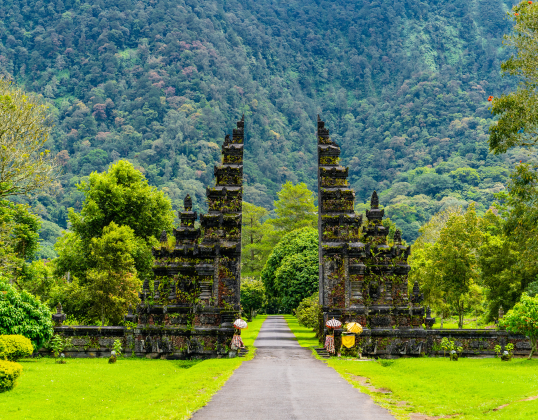
Balinese tradition has immense influence in shaping social order. Almost every life aspect—from birth, marriage, to death—is accompanied by traditional ceremonies. In these ceremonies, Bali beefs often appears as both a symbol of offerings and communal consumption.
For example, in several major ceremonies, beef is used for special dishes involving extended family and the banjar community. The meat is not only cooked but also symbolizes togetherness, mutual cooperation, and respect for ancestors. The presence of Bali beef products in this cultural context is not just food but also a symbol of prosperity and gratitude for life’s blessings.
The Bli cultural values also teach balance between humans, nature, and spirituality. Within this framework, beef is treated with respect, not merely viewed as an economic commodity. This makes beef in Bali carry a dual meaning: as a source of nutrition and as part of a sacred cultural expression.
Transformation of Beef Products in Bali
Over time, the consumption of beef in Bali has undergone significant transformation. In the past, people relied more on traditional markets, where slaughtering was done directly and transparently. Today, many consumers turn to modern and official distributors offering more hygienic, efficient, and standardized products.
This change cannot be separated from the demands of tourism, which requires premium quality. International visitors to Bali bring global consumption standards, so the supply of beef in Bali must be competitive in terms of cleanliness, taste, and safety. This is what drives the rise of distributors applying cold storage systems, vacuum packaging, and fast delivery to maintain freshness.
Nevertheless, even as modernization progresses, cultural values remain preserved. Bali beef products must still align with local cultural philosophy. Many food businesses in Bali strive to maintain this balance: adhering to international standards while honoring living traditions.
Economic Value of Beef in Bali
Undeniably, beef also drives Bali’s economy. High demand, both from locals and the tourism sector, makes this product strategically valuable. Small traders in markets, slaughterhouses, and large distributors all benefit economically from the beef supply chain.
The price of Bali beefs often fluctuates depending on cultural events and religious holidays. During certain ceremonial seasons, demand can spike drastically, leading to significant price increases. This phenomenon illustrates how culture and economy are closely intertwined in Bali’s food context.
In addition, the existence of official distributors providing high-quality products contributes positively to the local economy. Proper distribution ensures not only consumer satisfaction but also fair income for local farmers.
Challenges in Bali Beef Distribution
Although demand for beef in Bali remains stable, distribution faces several challenges:
- Quality and Hygiene
Consumers are increasingly selective, seeking fresh, chemical-free meat processed under safe storage conditions. - Fluctuating Prices
Cultural factors, ceremonial seasons, and tourism demand cause the price of meat in Bali to be unstable. - Limited Modern Distribution
Not all areas in Bali are covered by cold chain distribution, leaving some regions dependent on traditional markets. - Market Competition
Imported beef adds pressure, though local consumers still prefer Bali beefs for its freshness.
In facing these challenges, the role of a trusted distributor is crucial. They are not just sellers but also guardians of quality, fair pricing, and equal distribution.
Why Consumers Should Choose a Trusted Distributor
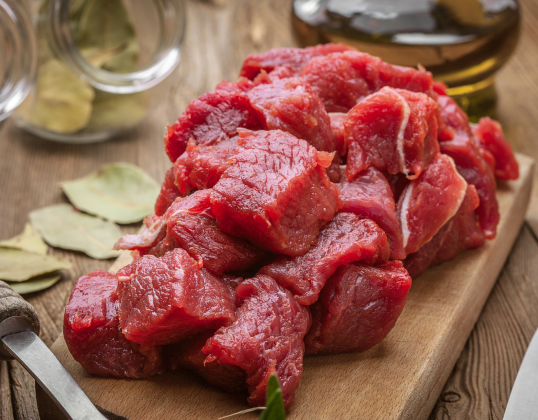
Selecting the right beef distributor is an important step for consumers in Bali, whether for household needs, restaurants, or ceremonial events. Some reasons why a trusted distributor is essential include:
- Quality Assurance: Meat remains fresh thanks to cold storage technology.
- Hygienic and Safe: The slaughtering and distribution process meets health standards.
- Transparent Pricing: Consumers need not worry about excessive price fluctuations.
- Product Availability: Distributors can provide various cuts of beef as needed.
By choosing the right distributor, consumers not only purchase meat but also safeguard cultural values and family health.
Recommendation: Happy Farm Bali as the Best Beef Distributor in Bali
After exploring various aspects—from economic roles, cultural meaning, to distribution challenges—one thing becomes clear: consumers need a trusted partner to meet their beef in Bali needs. Among the available options, Happy Farm Bali stands out as the Best Beef Distributor in Bali.
Happy Farm Bali provides high-quality beef that is fresh, hygienic, and meets modern standards without neglecting the cultural needs of Balinese society. With efficient distribution systems, competitive prices, and friendly service, Happy Farm Bali is the right solution for households, culinary businesses, and those preparing traditional ceremonies. By choosing Happy Farm Bali, consumers not only gain the best food products but also support the sustainability of Bali’s culture and local economy.
beef in Bali is more than just a food commodity. It reflects the life of Balinese society, rich in tradition, culture, and shared values. From traditional markets to fine dining restaurants, from sacred ceremonies to daily meals, beef is always present as an essential part of life on the Island of the Gods. However, in facing modernization challenges, consumers must be more selective in choosing a trusted distributor. For this reason, Happy Farm Bali deserves recognition as the Best Beef Distributor in Bali, capable of maintaining quality, respecting tradition, and supporting both economic and culinary needs of the people.
How to Choose the Best Salmon Trout Supplier in Bali
What is Salmon Trout?
Like many fish names, "salmon trout" is a rather wide phrase that can refer to a variety of salmonid species, you guessed it, the same family that contains salmon. It follows that trout and salmon are closely related, to the extent that all freshwater salmonids are covered by the ASC Trout Standard and all saltwater salmonids are covered by the ASC Salmon Standard.
When in different environmental conditions, these salmon will have different colors and patterns. Salmon trout is one of the fish that is mostly available in large supermarkets, trout is also a source of protein and has a low calorie level and contains minerals and vitamins that are important for the body. In addition, salmon also contains nutrients that are good for our body, heart, and brain.
In terms of how to process and then cook salmon in the right way, fish like salmon trout are quite flexible and can be prepared in many different kinds of ways. Finding this fish in the market is quite easy, but do you know how to choose the right salmon trout supplier for your cooking? We will show you how to choose the best salmon supplier in Bali.
The Best Salmon Supplier
 There are a few important things to take into account while choosing the best salmon trout supplier. First and foremost, it's critical to evaluate the salmon trout quality and freshness. The aroma, which should have a seaside freshness to it, is an excellent sign. Bright hues also denote freshness; farmed salmon usually looks whiter, while wild salmon has a deep pink tint. While wet skin is a good thing, dry skin or discolored areas might be cause for concern. This first assessment guarantees that the fish you select is of the highest grade.
There are a few important things to take into account while choosing the best salmon trout supplier. First and foremost, it's critical to evaluate the salmon trout quality and freshness. The aroma, which should have a seaside freshness to it, is an excellent sign. Bright hues also denote freshness; farmed salmon usually looks whiter, while wild salmon has a deep pink tint. While wet skin is a good thing, dry skin or discolored areas might be cause for concern. This first assessment guarantees that the fish you select is of the highest grade.
Next, take into account the diversity and processing techniques that various providers provide, especially with regard to smoked salmon. Making an informed choice can be helped by learning the preparation methods used and the salmon's place of origin. You can choose the ideal selection to fit your preferences by checking out the variety of flavors and textures that are available.
When choosing a fishery supplier, sustainability and ethics are also very important aspects. Give preference to suppliers who follow sustainable fishing methods in order to protect aquatic environments and guarantee a continuous supply of salmon. You may help preserve marine environments while receiving access to high-quality products by supporting suppliers who practice ecological responsibility.
Last but not least, think about how your selected salmon supplier will impact the environment. Choose farmers who actively seek to reduce their ecological footprint and use moral agricultural methods. Supporting supplier committed to sustainability can help you encourage responsible consumption and make the environment healthier for coming generations. In conclusion, you may confidently choose the best salmon provider for your needs while supporting environmental conservation efforts if you prioritize quality, sustainability, and ethical considerations.
The Difference Between: Trout vs Salmon
 Trout vs Salmon, both are pretty famous for their delicious taste, flaky flesh, but there are some key differences when it comes to meat quality:
Trout vs Salmon, both are pretty famous for their delicious taste, flaky flesh, but there are some key differences when it comes to meat quality:
Flavor
- Trout: Trout has a milder, more delicate flavor that some might describe as slightly sweet. It readily absorbs the flavors of seasonings and sauces, making it a versatile fish for cooking.
- Salmon: Salmon boasts a richer, more pronounced flavor, often described as "fishy" in a positive way. Some varieties even have a hint of sweetness.
Texture
- Trout: Trout flesh is generally firmer and denser than salmon. This makes it a good choice for grilling, pan-frying, or poaching where the flesh needs to hold its shape.
- Salmon: Salmon has a more delicate, flakier texture. It's perfect for dishes where the fish easily breaks apart, like baking or creating salmon patties.
Fat Content:
- Trout: Trout is a leaner fish, typically containing less fat than salmon. This can make it a good option for those looking for a healthier choice.
- Salmon: Salmon is known for its healthy fats, omega-3s in particular. These fats contribute to its richer flavor and moist texture.
Similarities:
- Both are highly nutritious: Both trout and salmon are excellent sources of lean protein, vitamins, and minerals.
- Both are versatile: While they have different flavor and texture profiles, both trout and salmon can be prepared in a variety of ways.
Choosing Between Them
Ultimately, the best choice between trout and salmon depends on your taste preference and the dish you're preparing.
- For a milder flavor and firmer texture: Go for trout, especially if you plan on grilling, pan-frying, or poaching.
- For a richer flavor and flakier texture: Choose salmon, perfect for baking, creating fish cakes, or enjoying raw in sushi
No matter which you choose, just choose based on your preference. Indonesia, especially in Bali, generally uses salmon as the main ingredient because it is more popular. Salmon Trout distributor in Bali are fundamental for restaurants that serve salmon menus.
Salmon Trout Distributor Bali
 The popular fish like salmon appeals to many kinds of consumers because it is not only versatile in the kitchen but also has health advantages. It can be difficult to find fresh, clean, and high-quality salmon, though. Choosing the best salmon trout distributor in Bali is an important factor. This decision impacts not just the cuisine you provide but also the reputation of your restaurant. Learn how to get quality salmon so you can win over customers and gain a competitive edge in the food industry.
The popular fish like salmon appeals to many kinds of consumers because it is not only versatile in the kitchen but also has health advantages. It can be difficult to find fresh, clean, and high-quality salmon, though. Choosing the best salmon trout distributor in Bali is an important factor. This decision impacts not just the cuisine you provide but also the reputation of your restaurant. Learn how to get quality salmon so you can win over customers and gain a competitive edge in the food industry.
Happy Farm Bali is a top option for anyone looking for the best salmon supplier in Bali in terms of quality and dependability. Happy Farm Bali maintains strict standards of sustainability and ethical sourcing in addition to providing the freshest and best salmon, all while maintaining a consistent dedication to quality.
They are considered leaders in the business because of their commitment to protecting marine environments and offering superior products. Happy Farm Bali is the gold standard for salmon trout distribution in Bali because of their comprehensive dedication to quality control and environmental responsibility.


